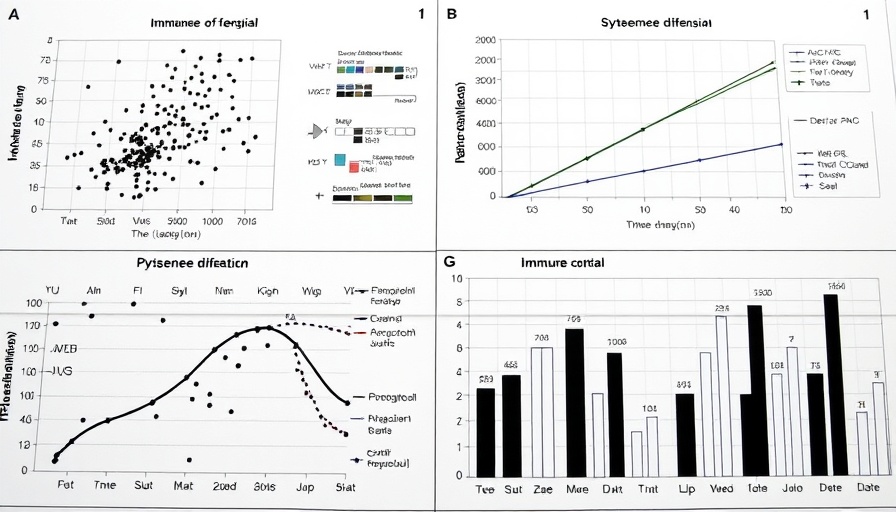
Unraveling the Mystery of Immune Defense in the Brain
Recent research from TWINCORE has illuminated a crucial aspect of our immune defense mechanisms within the brain, revealing insights that could reshape our understanding of neurological infections. As infections in the brain can lead to severe consequences, understanding how the immune system operates here in contrast to the rest of the body is critical for advancing treatments.
Understanding Microglia: The Project Managers of Brain Immunity
Dr. Andreas Pavlou notes that microglia cells serve a vital role in the brain's immune response, acting as coordinators that communicate with T cells to target infected cells. This specialized function is pivotal because viral infections spread unchecked without an effective immune response. Following their recent study, researchers discovered that the MAVS protein is essential for microglia to carry out their role effectively.
The Role of MAVS in Immune Signaling
Through experimentation with mouse models, TWINCORE researchers pinpointed that when the MAVS protein was deactivated in microglial cells, the immune defense faltered dramatically. The study found that while the number of myeloid cells and T cells remained stable, the communication between them deteriorated, demonstrating how essential singular pathways like MAVS are for maintaining brain health.
The Implications of Disrupted Communication
These revelations surrounding MAVS help us appreciate just how precise and balanced our immune responses need to be. Disruption in communication within the immune system could lead to further complications in the brain, potentially paving the way for new therapies that enhance microglial function and hence overall brain health.
Potential for Future Therapeutics
Understanding the intricate relationship between microglia and T cells opens doors for innovative approaches in treating neurological disorders. The findings suggest people suffering from conditions exacerbated by immune disruptions, such as Alzheimer's or multiple sclerosis, could benefit from therapies focused on bolstering MAVS signaling and enhancing communication within the immune system.
The Importance of Integrated Health Approaches
As these scientific advancements unfold, there’s also a burgeoning interest in the natural and holistic avenues available to support immune health. Practices such as dietary adjustments, supplementation, and lifestyle changes are increasingly seen as integral components of community health and wellness initiatives. By looking beyond traditional medical approaches, communities can engage with natural medicine practices to foster optimal health outcomes.
Navigating Health and Wellness Naturally
To complement burgeoning scientific discoveries, integrating lifestyle practices such as naturopathy and herbal supplementation can empower individuals seeking to enhance their immune systems naturally. As research like the one conducted at TWINCORE emphasizes the complexities of brain immunity, adopting natural remedies as supportive measures could represent a proactive approach in managing health and wellness.
Through this convergence of modern science and natural holistic practices, individuals can explore the best pathways to achieve health and wellness, ensuring that the foundations supporting their immune systems are as robust as possible. Such a multi-faceted approach will be vital as our understanding of immune defense in the brain continues to evolve, potentially leading to breakthroughs in both preventative and therapeutic avenues.
 Add Element
Add Element  Add Row
Add Row 



 Add Row
Add Row  Add
Add 


Write A Comment